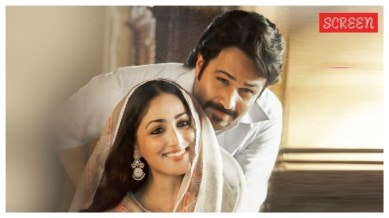Click here to follow Screen Digital on YouTube and stay updated with the latest from the world of cinema.

Suparn Verma’s courtroom drama Haq, starring Yami Gautam and Emraan Hashmi, has garnered a decent opening weekend of Rs 9 crore at the domestic box office. Though Yami’s character is named Shazia Bano in the film, it claims her struggles were inspired by the landmark Supreme Court verdict of the Shah Bano case in the 1980s. Hashmi plays Shazia’s husband, Abbas Khan, in the film. Sheeba Chaddha plays her lawyer Bela Jain, and Danish Hussain her supportive father, Maulvi Basheer.
Shah Bano was a resident of Indore. She filed a lawsuit in a local court seeking maintenance from her lawyer-husband Mohammad Ahmed Khan after he divorced her in 1978. The court ruled in her favour, asking Khan to pay Rs 79 per month as maintenance which the High Court then raised to Rs 179 per month. After a lengthy legal battle, the Supreme Court upheld the HC judgement and ruled in her favour in 1985. The verdict by a five-judge Constitution bench of the apex court ruled that Muslim women were also entitled to maintenance under the law.
Shah Bano’s youngest son, Jameel Ahmad, who is now 75 years old, described to The Quint in 2017 why his father divorced his mother. He claimed that his father’s second wife was 14 years younger than him. “Both the ladies used to fight endlessly over trivial issues. That was the reason why my father decided to divorce my mother,” he said.
Ahmad said that Shah Bano, who was 60 at the time of her divorce, developed high blood pressure and frequently fell ill, as a result. “My mother fought for self-respect. My father was very unfair to us,” he said, adding, “Even though he was financially well-off, he hardly cared for us. He used to meet us only on Eid. After divorcing my mother, once I went to meet my father on Eid. But he slapped me and hurled abuses at me.”
While Haq, inspired by the Shah Bano case, depicts its protagonist’s similar journey, it doesn’t showcase the ripple effects of the Supreme Court’s 1985 landmark judgement in her favour. Ahmad claimed that a lot of people offered him and his siblings to refuse the maintenance in exchange of jobs and money, but they didn’t relent. They were even threatened by a rally held next to their place in Indore.
He even recalled how the then-Prime Minister Rajiv Gandhi invited Shah Bano to New Delhi. She obliged and was accompanied by Ahmad. “Rajiv ji said that the situation was very critical. He asked us to refuse the maintenance. He spent around 15 minutes with us,” revealed Ahmad. Following protests by Muslim organisations, the Rajiv Gandhi government enacted the Muslim Women (Protection of Rights on Divorce) Act in 1986. This law nullified the SC decision in the Shah Bano case.
Click here to follow Screen Digital on YouTube and stay updated with the latest from the world of cinema.